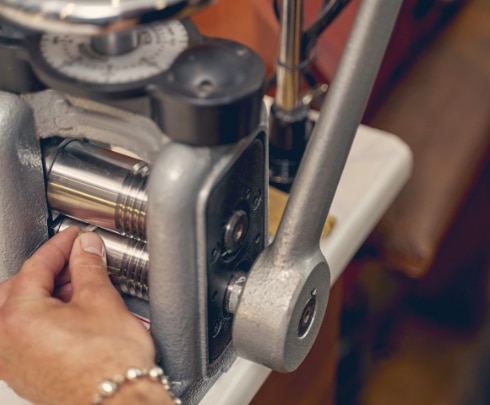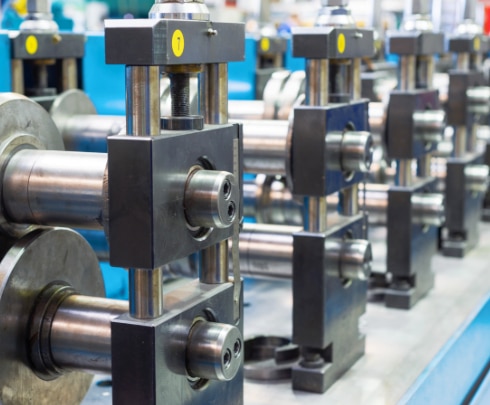
Regular servicing can be done by you - such as cleaning, inspection of oil levels, lubricants, and coolant tanks, and keeping a record of your mill inspections. A more substantial, professional servicing will inspect and potentially replace mechanical parts, such as bearings, thrust washers, or shims - enhancing the speed and precision of your mill and keeping it in work for longer. A machine that has not been serviced for an extended period of time will likely have parts that are worn down past the critical limit. While still operational, the quality of work produced by these machines will most certainly be sub-par when compared to a machine with properly maintained components.
Bellcliffe Engineering offers a rolling service when it comes to the servicing of your rolling mill - it can happen as often as needed, for as long as you require. After servicing, Bellcliffe Engineering can moreover advise you on remedial work to help keep your rolling mill in prime condition. We have built up trust with our clients through regular scheduled mill servicing, to greatly - if not completely - reduce the downtime of your machine.
Capabilities & Technical Specifications
Bellcliffe Engineering have over 100 years of combined experience working with manufacturing machinery and components; we have provided our services for customers all around the world. For this reason, you can be sure your machinery is in safe and skillful hands when undergoing servicing by us. Our servicing starts with a free site survey, helping us to evaluate how best to service your rolling mill.
Our servicing can be performed bespoke to you; for exact technical specifications, reach out to us and we’ll be happy to advise you.

Applications
The services at Bellcliffe Engineering can be applied to a variety of sectors, including:
Got A Question? Get In Touch
FAQs
Properly maintaining your rolling mill in between professional maintenance servicing can consist of a few simple acts which can greatly extend the lifespan of your machine.
Cleaning of your rolling mill should take place regularly, in order to remove any dirt or debris which may clog up and cause hazards or eventual downtime.
Lubrication of relevant machine components will protect your machine from physical wear, and ease friction between moving parts.
Inspection of the machine and its components is another key step in preventative maintenance. Look for damage to the functioning of the machine. Inspecting for any leaks, or change in noise, can also alert of damage. Document these details to build up an active profile of your mill which can be used for future reference.